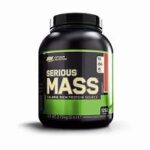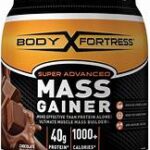Eating a nutritious diet is crucial for good health and fitness. However, with so much conflicting information and fad diets out there, it can be challenging to know what constitutes a healthy diet. In this article, we will provide you with tips and guidelines for nutritious eating habits that will support your health and fitness goals.
Eat a Balanced Diet
Choose whole grains instead of refined grains. Whole grains such as brown rice, whole-wheat pasta, and whole-grain bread contain more fiber and nutrients than refined grains like white bread and white rice.
Incorporate lean proteins into your diet, such as fish, lean meats, beans, and lentils. Protein is essential for building and repairing tissues and muscles, and it also helps you feel fuller for longer.
Lastly, choose healthy fats, such as avocados, nuts, and olive oil, which can help reduce the risk of heart disease and stroke.
Watch Your Portions
Portion control is an important aspect of maintaining a healthy weight and avoiding overeating. It is essential to balance the amount of food intake with the amount of energy you burn through physical activity.
One trick to help with portion control is to use smaller plates. This helps you eat a smaller portion size without feeling deprived. You can also divide your plate into sections, with half your plate dedicated to vegetables, a quarter to lean protein, and a quarter to whole grains.
Another useful tip is to fill up on high-fiber foods, such as vegetables and whole grains. They keep you fuller for longer and help you eat less overall.
Drink Plenty of Water
Staying hydrated is crucial for overall health and wellness, particularly during exercise. Water is the best way to hydrate your body, and it also helps to flush out toxins and waste from your body.
You can also add flavor to your water with cucumber or lemon slices, or drink herbal tea, which is a great way to stay hydrated while also getting additional health benefits.
Cut Back on Sugar and Processed Foods
It’s essential to limit your intake of sugar and processed foods, which provide little nutritional value but are often high in calories, sugar, and unhealthy fats.
Sugary beverages such as soda, energy drinks, and sports drinks are particularly harmful as they contain large amounts of added sugar, which can lead to weight gain, type 2 diabetes, and other health problems. Instead, opt for water, herbal tea, or low-fat milk or dairy-free alternatives.
Processed foods, such as fast food, frozen meals, and packaged snacks, are often high in unhealthy fats, sugar, and salt. Try to eat fresh, whole foods as much as possible and prepare your meals at home, where you have control over the ingredients.
Practice Mindful Eating
Mindful eating involves paying attention to the taste, texture, and smells of your food and eating slowly and intentionally. It’s essential to avoid distractions such as watching TV or using your phone while you eat, as it can lead to mindless eating and overeating.
Additionally, being mindful of how full you feel can prevent overeating and help you maintain a healthy weight. Take a pause while eating and ask yourself if you’re still hungry, or if you’re eating for another reason, such as boredom or stress.
Conclusion
In conclusion, developing nutritious eating habits is essential for good health and fitness. A balanced diet that includes whole, nutrient-dense foods, drinking plenty of water, and being mindful of portion sizes and mindful eating can help you achieve and maintain a healthy weight, improve energy levels, and prevent chronic diseases.











